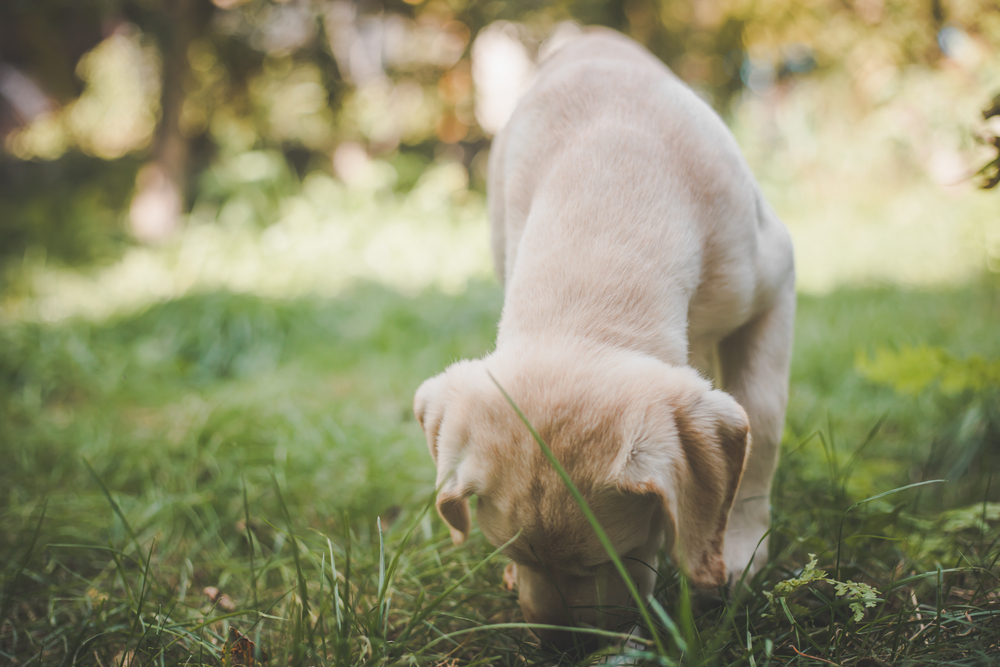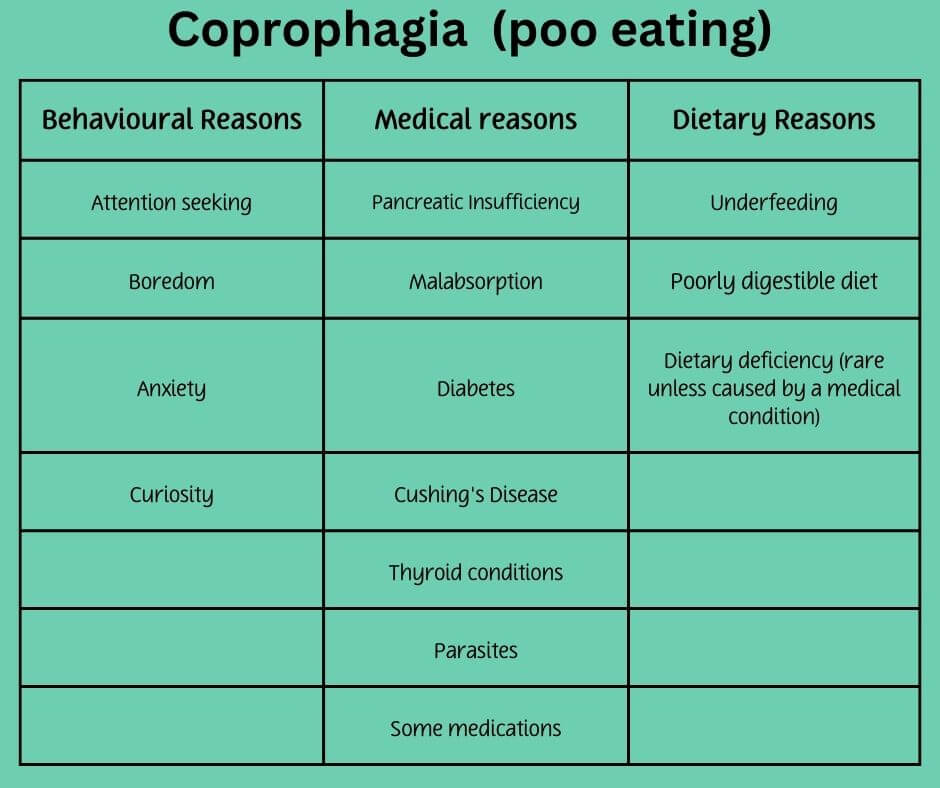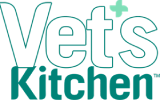
Help! My dog eats poo – what can I do?
July 27th 2022
Why does my dog eat poo and how can I stop it?
As much as we love our canine companions, they can have some bad habits that we find disgusting. One of those is eating poo (faeces). If you are one of the owners embarrassed to admit your dog does this, be assured that some studies found that 49% of all dogs have done this at some point or another and nearly a third currently eat poo. The correct term for poo eating is coprophagia.
The different types of poo eaters
Yes, there are different categories of coprophagia! Some dogs will only eat their own poo, or those of the other dogs they live with, some dogs eat other dogs’ poo and some dogs will eat cat poo or herbivore poo, such as droppings from rabbits.
Why do they eat dog poo?
There are many different theories about why they do it. Bitches that have a litter of puppies will eat the puppy poo to keep the nest clean. Puppies may copy their mother or may simply eat poo through part of their natural exploratory behaviour. They will normally grow out of it.
There are other reasons believed to trigger this common, yet less than desirable, pastime:


Vet Know-how Tip
It is often suggested that dogs eat poo because they are lacking in some nutrition. This, however, is very rarely the case. Speak to your vet just in case there is a medical or behavioural trigger, especially if your dog has never eaten dog poo before and then suddenly starts.
What can you do?
- Get Help. Speak to your vet to rule out any medical reasons and for help regarding behaviour.
- Stay Calm. Do not punish your dog. Studies have shown that this can make poo eating worse. Some dogs will eat poo because they have previously been chastised for pooping indoors/in an inappropriate place.
- Speedy Scooping. If your dog eats his own or other household dogs’ poop (coprophagia is more common in multidog households) try to restrict access by removing any faeces from the garden as soon as possible.
- Distraction. If your dog is showing interest in poo, try to distract them with a toy or something else instead. Reward them for leaving the poo alone.
- Train a ‘leave it’ command, so that on walks you can supervise them and ask them to ‘leave it’. Make sure you reward good behaviour with a high value treat (something better than their normal kibble).
- Muzzle training. If you have tried other options, you may wish to consider muzzle training. It is very important that your dog learns to wear a muzzle in a positive way. Muzzles should not be used as a punishment. Here is a good article on preparing your dog to wear a muzzle:
https://www.apbc.org.uk/wp-content/uploads/APBC-Advice-7-Dogs-and-Muzzles.pdf
- Change the feeding regime. Smaller more frequent meals may help if your dog is a hungrier breed or if they have any other digestive issues.
- There are also commercially available supplements and powders that claim to reduce coprophagia. However, reviews from owners seem to be somewhat hit and miss.
- Diet Change. It is a fallacy that dogs on a certain type of diet will not eat poo. Dogs have been known to eat poo on dry, wet, home-prepared and raw food diets. Theories about adding things to your dog’s diet like pineapple, chilli powder or pepper to make the poo less tasty have not been shown to have any long-term success and are not recommended. Whatever, you decide to feed, it should be the best quality you can afford and easy to digest. Dogs that have digestive problems such as loose or frequent stools will often eat poo. Finding a diet that enables them to produce normal stools, may help reduce coprophagia.
- Try adding some prebiotics or probiotics to support the digestive system.
Vet Know-how Tip The best way to determine how digestible their food is, is to see how much poo your dog produces. Dogs on a highly digestible diet should produce small amounts of stools.
What about cat poo?
Most dogs will eat cat poo, given the chance. Cat’s have diets much higher in meat and protein than dogs and for some reason, this makes their stools pretty irresistible. Again, teaching a leave it command, trying to remove the cat poo and distracting your dog is the best way to avoid this.
Vet Know-how Tip Cat faeces can contain bacteria and parasites that can pass to dogs, so if you suspect your dog is snacking on cat’s poop regular worming is important.
What about herbivore poo?
It is common for dogs to eat rabbit, sheep, cow and horse poo. Again, there are different theories surrounding this habit, some say they like the fibre and other sources suggest that it is just part of a dog’s normal scavenging behaviour. Farm animal faeces may contain bacteria, parasites or medication that is harmful to your dog. However, the risk is low so if they do snack on a bit while your back is turned, don’t panic.
If your dog is coprophagic and you would like any Vet Know-how advice on possible dietary changes, please don’t hesitate to contact us: contact@vetskitchen.co.uk

 Shop Dog
Shop Dog
 Shop Cat
Shop Cat
 Vet Know-how
Vet Know-how Contact
Contact